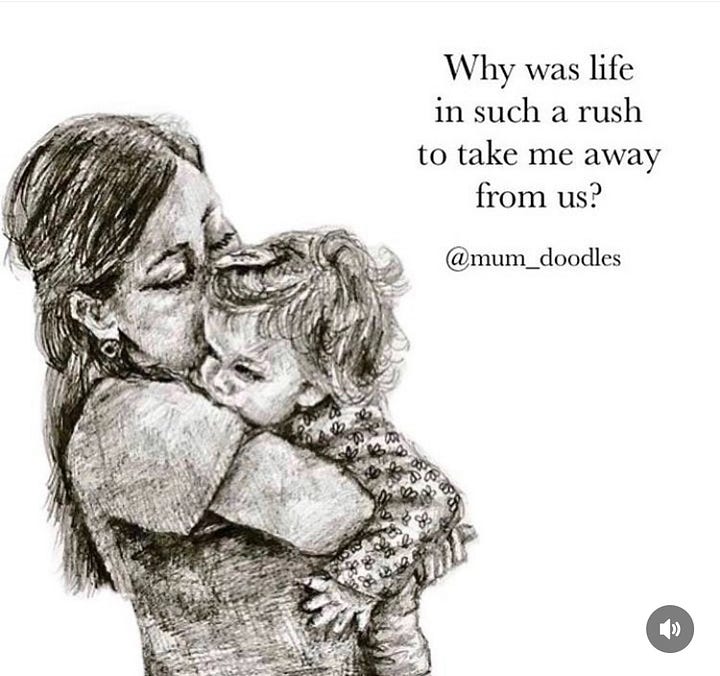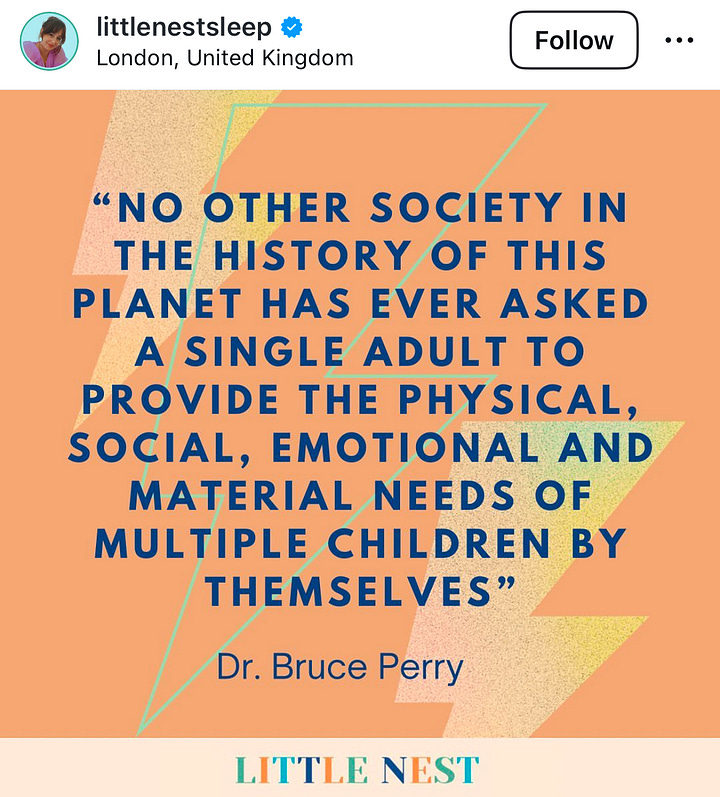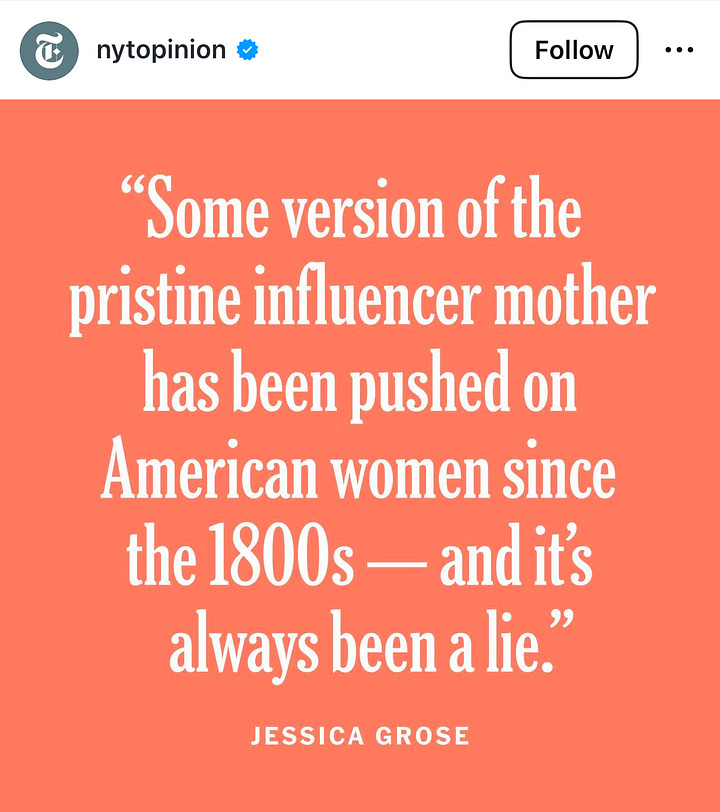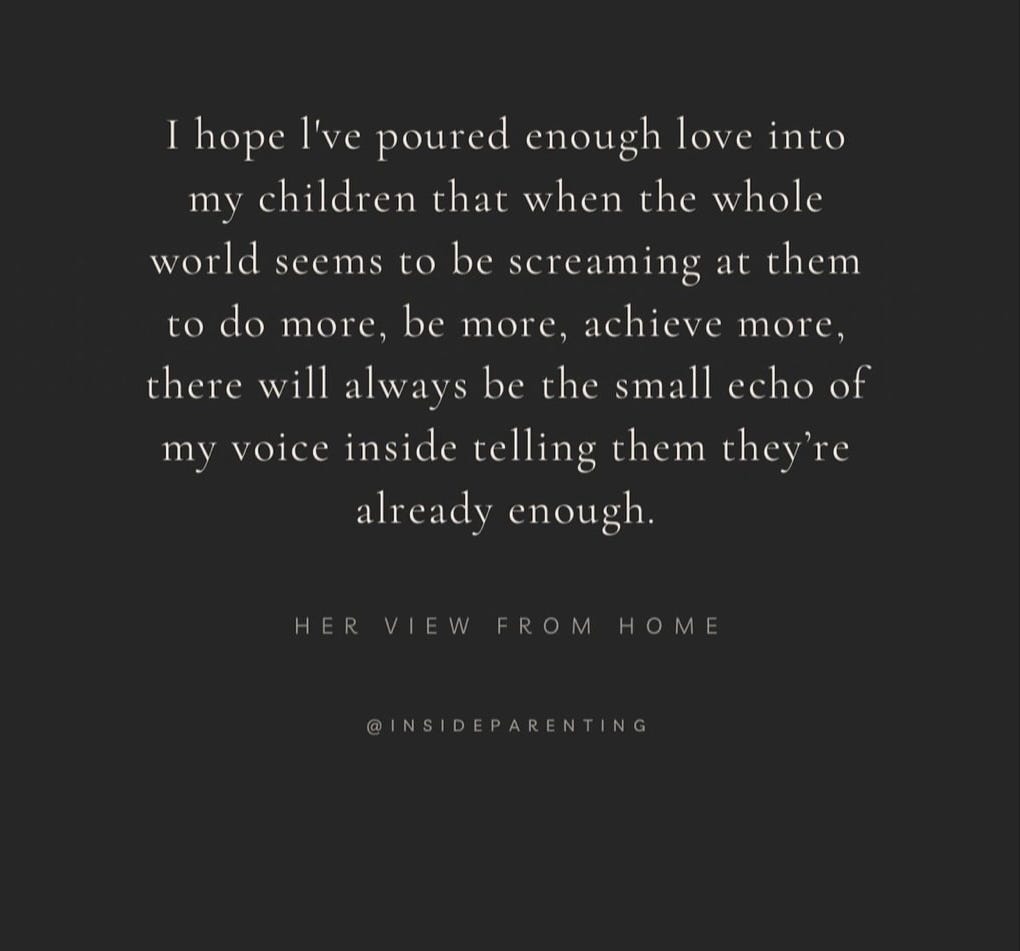ADHD and motherhood
Short of being able to reverse the impact of the patriarchy, I had to make myself OK

Short of being able to reverse the impact of the patriarchy on the collective psyche of women everywhere, I had to control and change what I could.
I found a way to make myself OK for my kids, for my family.
After our usual choreography of tucking in, water-getting, and last-minute snack-retrieving, my six-year-old daughter continued requesting my presence in her room as she settled her body down for the night. It was late, I was tired, and I wanted to be done with our dance.
“Come here,” she said, “I have a secret to tell you.” I entered her room for the 235,966,028th time and reluctantly gave her my ear, trying to hide my impatience. “Yes, my love?”
“Mommy, when you’re not here, it feels like a dark world.”
She is either really good at knowing just the right thing to say, or she’s simply better than I ever was at identifying her needs and communicating them. Either way, I climbed into bed next to her and surrendered to the beauty of being her safe place. Meaning that much to someone is a privilege, a gift. It’s motherhood, and it’s one of the only morsels of true magic on Earth.
I, however, like many mothers across America had a bit of a rocky start. Loving my kids was never the problem… I adored every inch of my juicy little babies down to the crust under their noses, the chunks of dried milk that collected in their neck rolls, and the lint that stuck between their toes. It was the things no one prepared me for: the checklists, the judgements, the expectations, the physical demands on my body, the mental load, the worries, the fears.
It was the pressure to do everything right, do everything perfect, and do everything alone. That was where early motherhood veered for me onto the backroads of burnout.




When I received my ADHD diagnosis three years ago, it provided an answer to so many questions… and I applied that answer to why I struggled during my postpartum period. That makes sense, I thought. I was dealing with unmanaged ADHD… that’s why I was so burned out.
But the more I talked to other moms, the more I interacted with them on social media, the more communities of women I joined, the more books and literature I read, the more I discovered that ADHD may have played less of a role in my burnout than I thought.

I recently read that we need to start calling burnout what it is: exploitation.
Ok, I read it in a meme.
But this reframes it less as something we’re doing to ourselves and more as a systemic problem that needs to be addressed on a macro, societal level.
Yes, I needed a village I didn’t have. Yes, I needed paid parental leave and affordable childcare. Yes, I needed better maternal healthcare, especially after my babies were born. Yes, I needed thousands of years of unfair expectations on women to stop weighing on my chest every time I opened Pinterest, thought about formula-feeding, or saw a dust bunny huddled in a corner of my living room.
After my diagnosis, I spent a lot of time and energy trying to distinguish between what was my ADHD and what was a reasonable and innate reaction to the unjust conditions of motherhood in America.
But at some point, I realized it didn’t matter. I just needed a solution.
Short of being able to reverse the impact of the patriarchy on the collective psyche of women everywhere, I had to control and change what I could.
In my last blog, I mentioned just finishing Taylor Jenkins Read’s Seven Husbands of Evelyn Hugo. In it she writes, as a child “you don’t have to make yourself OK for a good mother; a good mother makes herself OK for you.”
I found a way to make myself OK for my kids, for my family.
This looked like adjusting my expectations of myself and others, finding more flexible and sustainable work, going to therapy, setting boundaries, and of course, figuring out what medications I could take to manage my disability and the crippling anxiety that had enveloped nearly my entire personality.
I pushed back.
Here are two truths: 1. Being a mom is really hard. 2. Being a mom doesn’t have to be as hard as it is for so many of us.
Because of the work I’ve done over the last three years (I’ll admit it helps that my children have outgrown the little stage), I can now fully enjoy what motherhood is meant to be: falling in love every day, these wonderful, mini people surprising me at every turn with how pure, honest, smart, thoughtful and creative they are.
My son can solve a Rubik’s cube in under a minute, nails his impressions of movie characters, and easily finds the most efficient way to get something done. In one of his Minecraft worlds, he constructed a community park complete with trees, wildflowers and a little bench just for me because he knows I love nature. He always remembers where I parked. His mind blows my mind.
My daughter is six but already one of the most capable people I know. She makes her own breakfast, rarely lets me kiss her goodbye at drop off, and taught herself to tie her own shoes saying “Easy peasy, I just had to keep trying.” When I rattle off a list of her strengths (kind, smart, thoughtful, creative, strong), she always reminds me when I forget “genius”. I want to be her when I grow up.
At night they both still need me to wrap my arms around them to feel safe enough to fall asleep. They both make me laugh every day.
I hope they always know how amazing they are just for being themselves.
It’s been a little more than one year since I first began posting on Substack (shoutout to my ~180 subscribers!) From now on, I’ll be adding a new lens through which to cast my neurodivergent womanhood. Throughout this year, you will hear more about my motherhood, which is an even more personal part of me than my own brain chemistry. As part of this evolution, I plan to toggle between “ADHD” and “Motherhood” as topics of discussion and titles for my blogs.
I’ve shared with you how my brain works, now I’ll share a bit more of my heart.










I am so here for all of this and can’t wait to read more about your motherhood journey. I do think adhd adds a particularly heavy burden to the already unmanageable expectations put on us as mothers. I am at the very beginning of figuring out what neurodivergent motherhood looks like for me.
Also if your son is looking for some motivation, mine can now solve one in under ten seconds. I love seeing how our children’s brains can thrive